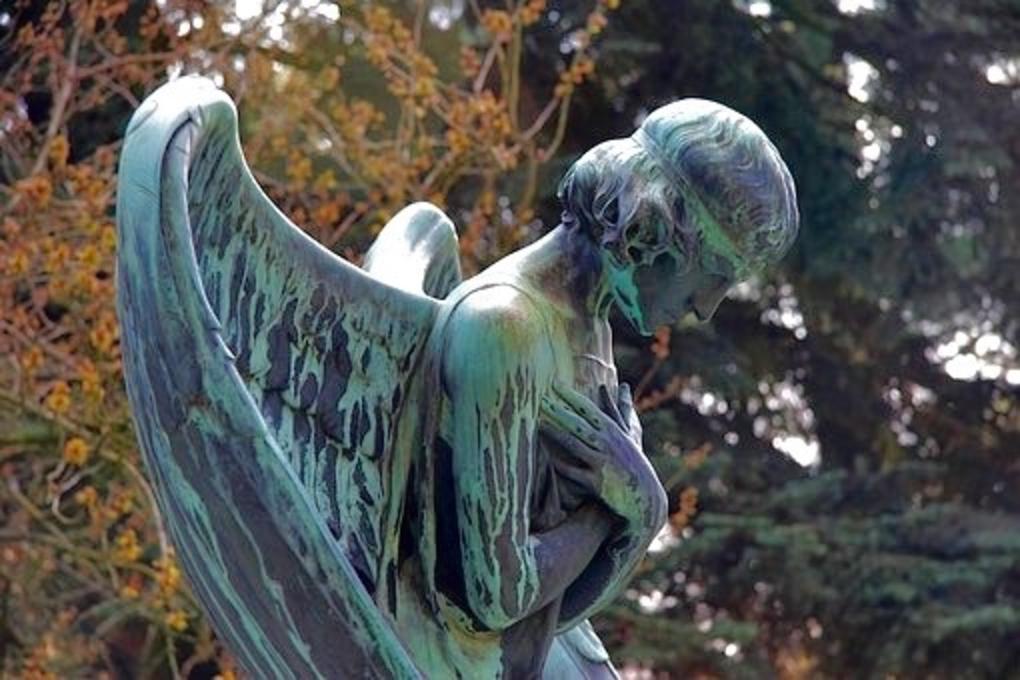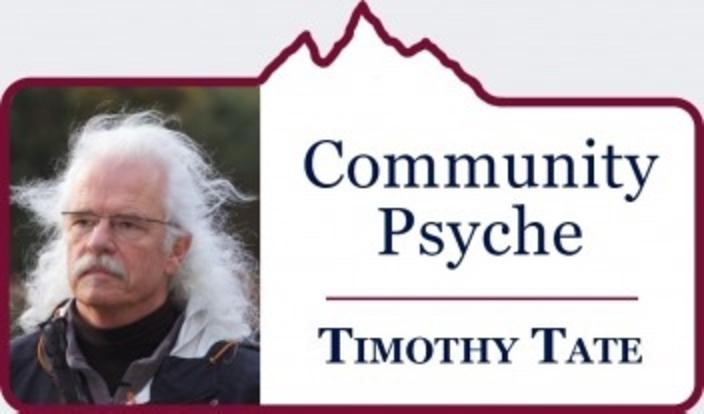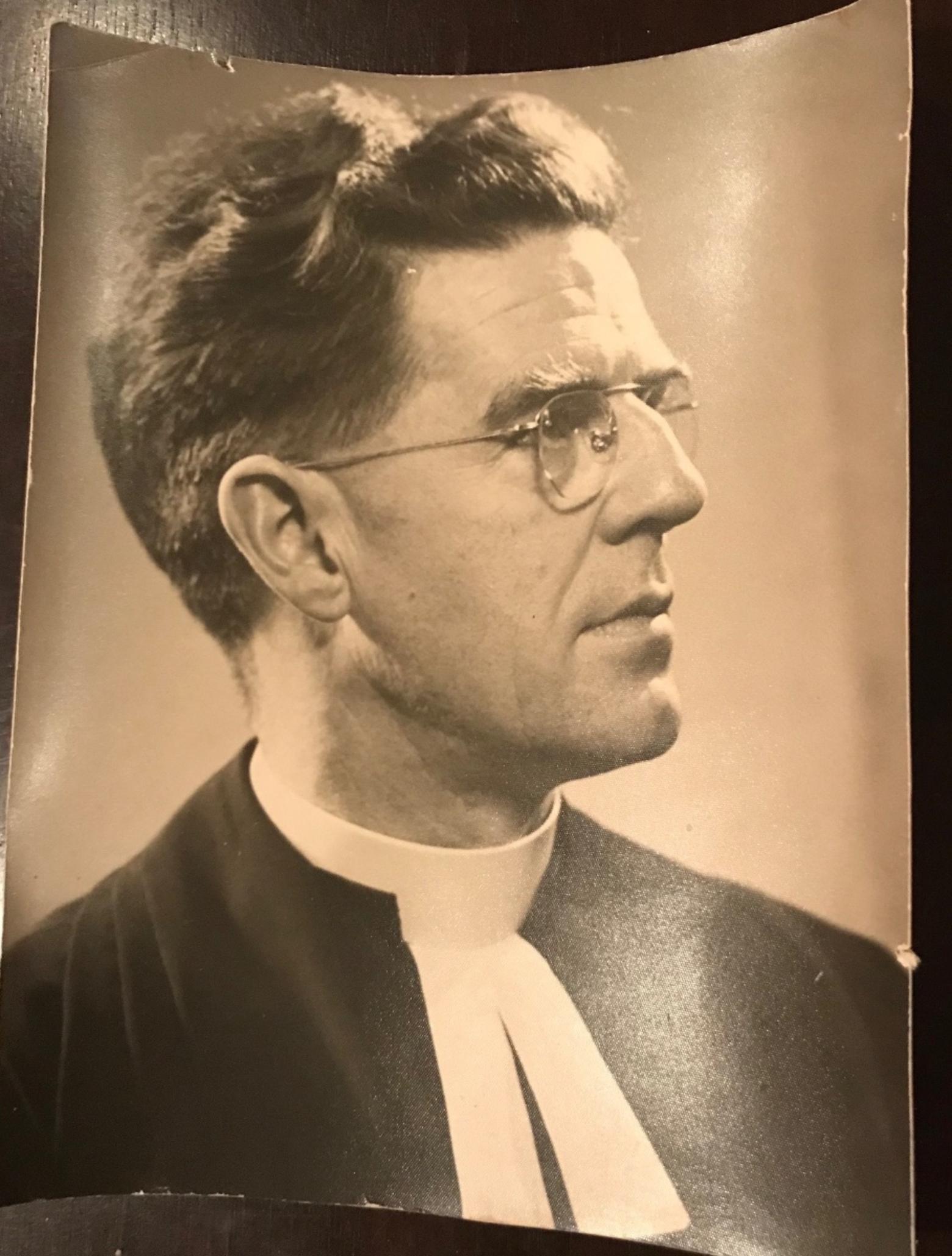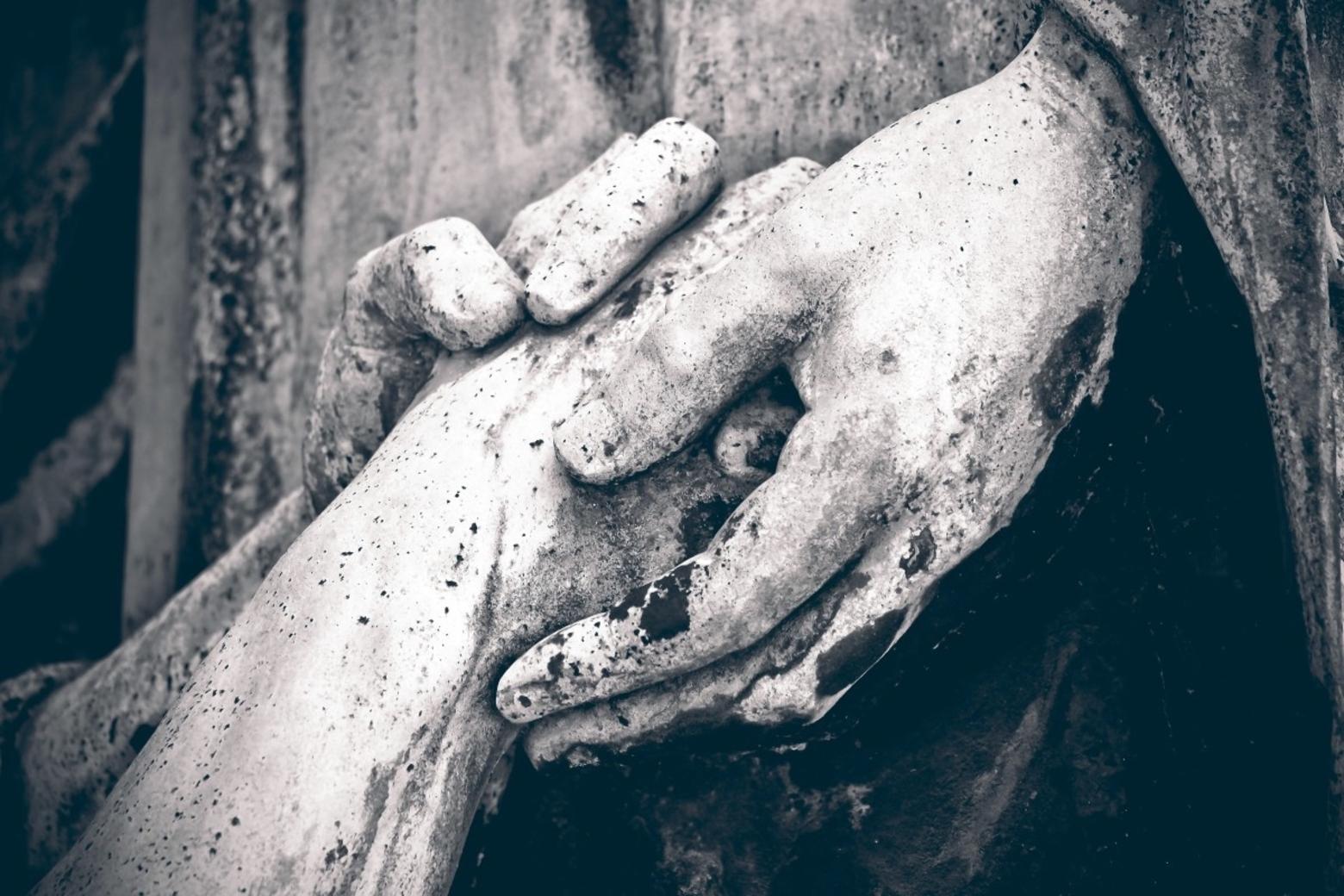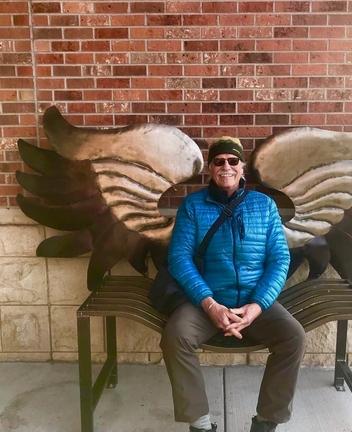Back to StoriesThat Which We Cannot Escape In Life
March 2, 2018
That Which We Cannot Escape In LifeFor psychotherapist Timothy Tate, the minister's son, dealing with death requires making peace with oneself
Suffering: No one in human life escapes its grasp. And yet while it is something we all wish to avoid, it carries forth the most potent meaning.
How
we confront life's fundamental themes is influenced by the personal experiences
we have in their name such as: birth, love, betrayal, children, loss,
separation, joy, beauty, wealth and, invariably, death—each of which can be accompanied by suffering. And these are just a few of the
Shakespearian-level big ones.
We each have different stories woven into us around
these archetypes but the one theme that has come up in my consulting room
lately is death. As two people said to me last week, “I am scared to death of
dying.”
Maybe hopefully sharing with you, Mountain Journal reader, my personal experiences with death
that shaped my perception of its nature will shed light on the gravitas of
death’s sting for the living. Hopefully, it will lend some insight into how I try to help others cope with mortality when we meet behind The Blue Door.
I
was introduced to death at an early age. My father’s mother died in Ireland
when I was five. I remember driving into Chicago’s sole commercial airport at
the time, Midway Field, and watching my stoic yet grieving father walk across
the Tarmac to board the TWA Lockheed Constellation aircraft with its four propellers
spinning and its three tail fins erect and proud.
The
year was 1954. There were curtains in the plane’s cabin windows. Upon his
return Dad said he could see the waves frothing on the Atlantic Ocean while
they bucked the headwinds heading toward Shannon.
I
did not know my grandmother; she was from “the auld sod,” the tough wife of my
grandfather, a drunk Irish horse breaker. Or so the story goes.
What
I did hear was that death was an unwelcome, unannounced visitor that never left
empty handed. And from my minister father’s pulpit I heard in no uncertain
terms that “Ye, best be on the right side of the Lord when it's time for you to
play tag with the angels.”
The
alternative was eternal damnation. Sunday school and prayer services and
subsequent church services cemented the notion that accepting Jesus as your
personal savior was The Way.
As
an inquisitive child, I asked my mom a question as we stood together in the
kitchen of the manse one Sunday afternoon after the weekly post church roast
beef was eaten and the dishes washed. How did I know when and if I was saved?
And
here’s the thing, my mother, the pastor’s wife, said, “Timmy, you never know.”
This was my virgin existential moment of total despair.
My
mother, father, and I crossed the Atlantic on a steamship in 1956. We took the
train from LaSalle Street station in Chicago on the Grand Trunk Line to
Montreal Canada, where we were scheduled to board the S.S. Great Britain and
sail down the recently opened St. Lawrence Seaway on our voyage across the
North Atlantic to Liverpool, England.
The
immensity of the North Atlantic in June as it surges off the coast of Labrador
both intrigued and terrified the lad of eight that I was. Icebergs were often
visible during the seven day crossing. One iceberg in particular caught my
attention. There was a solitary polar bear pacing around its perimeter as it
drifted in the swells disappearing and reappearing for the time it took our
pitching, creaking ocean liner to pass.
Today,
that iceberg is likely long gone and who knows what awaits the descendants of
that snow-coated ursid.
Once
in England we took a bus tour through Scotland. The glass-domed tour bus held
mostly retired people. My parents then were in their fifties.
The
bliss of all the attention paid to me as a trusting youngster and the sublime
beauty of heather draped hillsides rolling by created a deep feeling of
wellbeing that I can remember to this day. It lasted until we crossed over a
stone span bridge. I looked down into the black tannin water of those Highland
Rivers and saw men running along the bank, one carrying a thick blond colored
rope draped over his head and laying on his heaving chest.
Looking
back to the river I saw a body in a dead man’s float punctuated by my mom’s
urgent voice: “Don’t look at that.”
The
next time I met death’s entourage was at my older brother’s child’s funeral in
a Clarendon Hills, Illinois cemetery on a dank frozen fog afternoon. I was 12
and I did not understand why there were sheets in the trees and scattered
around the parkland surrounding the cemetery. My mom whispered to me that these
sheets were covering the bodies of those people killed in a morning crash of a plane trying to land in a wintry storm at Midway Airport.
Dad
presided over the wee casket at the graveside speaking about “dust to
dust.” I never met Heather, my brother’s
daughter, but I saw in his grief that death’s sting was inconsolable. I
remember thinking how could someone so small be allowed to die?
I’ve
dealt with death—in my practice, in our mountain town community and up close and very
personally. I have lost my sister to cancer as well as her two sons—one to
cancer and one to a fire in his cabin sparked by the negligence of a drunk
smoking man.
I
have presided over funeral services and grieved in fellowship when community
members have passed over.
If
there is a lesson to be learned by those of us who remain after our dear one’s
depart it has to do with fear. As R.D. Laing suggests in his writings, the fear
of dying is actually a fear of fully living. How
else can the end we all face be so intimidating if it were not the ultimate
mirror for a sense of unfulfillment in the way we are choosing to live while
alive? And when one does die there is an eerie shimmering presence of life’s
force leaving.
Witnessing
a person dying is its own moment. There was my dear aunt, Frieda, when I was
32. Her sister, my Mom, died six years
earlier while I was teaching in France. My father’s death then was unknowingly four years in the future, waiting for him in Miles City.
As
the nephew closest to my aunt, I was charged with returning to my mother’s
birthplace, Muskegon, Michigan where Freida lived her life out in their family
home hand built by my maternal grandfather, a Swedish immigrant.
She
was a gifted artist, composing birthday cards for the National Republican
Committee’s birthday wishes to Ike and the like. She lost a lung to leukemia
back in the 1940s giving her a humped
back. She taught me the card game cribbage pegging out 15-1,15-2, on the
screened-in porch during humid Midwest summer evenings. Her piercing
bespectacled eyes would flash at times with unnerving directness.
If
you have spent any time in proximity to an ICU ward you know the mechanical inhale
and puffing exhale of breath sounds emanating from the medical assistance
equipment. It’s a calming desperate sound, regular, rhythmic, and artificial.
Add to that the beeping of beige monitors tracking the critically ill vitals
creating a suite of acceptable best medicine practice. It’s like a zoo but
different, artificial, humane, sacrosanct, where the protected, observed, and
managed life survives in captivity.
I
was alone in the waiting room, institutional carpet and angular wooden frame
chairs walls adorned with bucolic nature scenes or inspirational quotes about
sunrise. Sometimes I find hope of a new day a cliche about gratitude.
My
aunt Frieda was in her last days if not hours now, kept alive by artificial
means. I was the closest family member available and so was charged with making
the fateful decision of whether or not to pull the plug whenever that time
came.
"As Arthur Clarke shares in his book Tales of Ten World's: ''The person one loves never really exists, but is a projection focused through the lens of the mind onto whatever screen it fits with the least distortion.'"
It was clear that when the attending physician
came on his rounds that today was that time. Frieda's frail health was stronger
than any of her siblings but was now at the end of its run. The physician went
through the end of life support protocol and retreated to leave me alone with
my beloved aunt as her life drained away.
There
is an eerie fullness to the emptiness of the dying moment. What is most
striking is that the head, the animated capital of our life’s choices, quickly
and quietly becomes a vacant skull.
The absence of life is peaceful like a barren
landscape is. Death is the ultimate closing act where the life of the person in
question can no longer hold the projections of love or hate or need or judgment
that it has screened for the others. The withdrawal of this intimate other who
has carried our projections is experienced as our loss, our grief. There is no
other conclusion to life than death, the end of the show, the cold snow that follows the rain and eventually melts away.
As
Arthur Clarke shares in his book Tales of
Ten World's: “The person one loves never really exists, but is a projection
focused through the lens of the mind onto whatever screen it fits with the
least distortion.”
The
Tibetan Book of the Dead tells us about the Bardo state, or passageway
between worlds and instructs those
mourning the beloved’s loss to sit by her and whisper into her ear to not be
distracted by the demons of our collective unconscious but continue steadfastly
toward the light. I find this protocol helpful advice for the living since our
fear of death is exactly that, being captured by the demons of our ego’s fear.
In other words, the task of the living is to recall their projections while
alive rather than save them all up for the final crossing.

